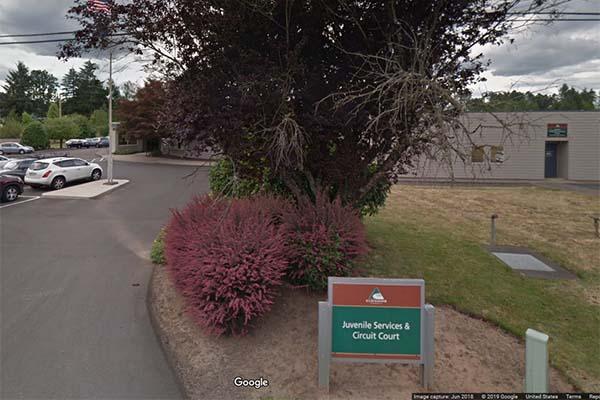Each successful case supervised by the Juvenile Department involves cooperative relationships between the Juvenile Counselor, the youth's family, the District Attorney's Office, the Victim Advocates Office, school personnel, treatment providers, and any other adult that has supervisory responsibilities with the youth.
Once a sex offense referral is received from a law enforcement agency their report is reviewed by Juvenile Department staff, the District Attorney's Office, and a representative of the Victim's Advocates Office. From that point a decision is made regarding an appropriate plan of action that takes into account the nature of the alleged crime, the youth's living situation, the perspective of the victim (or their family), and the safeguards and supervision that can built around the youth. Essential to this process is the cooperation of his or her family given the fact these youth tend to need a great deal of support and accountability from those who are closest to them.
In order to assist in the decision making process, youth participate in a psychosexual evaluation with a qualified mental health professional possessing specific training and expertise regarding youth who have offended in a sexual manner. Based in part on this evaluation, the abilities and cooperation of parents or guardians, and the willingness of a youth to accept responsibility for the alleged offense, a plan is developed that will either maintain a youth in the community or move him/her to a more restrictive setting to receive treatment.
If remaining in the community appears to be a reasonable, safe, option, youth are subjected to a level of supervision and expectations that usually exceed those of youth referred for other reasons. Probationary conditions typically ordered by the court involve participation in individual, family, and group counseling specifically addressing the issues that led a youth to act out in a sexually inappropriate manner. Polygraph testing is generally a part of the treatment process as a means of ensuring a youth is being honest about his/her behaviors from the past as well as their choices and behavior over the course of treatment. Treatment usually involves a number of stages that, on average, take 12 to 18 months to complete. Toward the latter part of the process a youth is expected to complete a Clarification Letter(s), in which he/she is expected to fully take responsibility for all of the offenses he/she has known to have committed and the harm that he/she has caused through their choices to offend.
If it is initially determined that a youth is not safe to remain in the community to receive treatment, or if a youth fails to follow his/her probation conditions, a variety of residential treatment programs are available where a youth can complete sex offense specific treatment. These settings generally have staff that supervise youth 24-hours a day and have the capability to address not only sex offense issues, but other issues contributing to poor choices and behaviors demonstrated by that youth.
Finally, youth who are adjudicated for felony-level sexual offenses are required to complete a Sex Offender Registration with the Oregon State Police. These youth must register their names and addresses with the Oregon State Police once a year (near their birthdays), any time they move, change employment, or enter college. Two years after the termination of their probation, youth required to register have the option of seeking relief from registration through the court in which they were originally adjudicated.
 Translate
Translate






